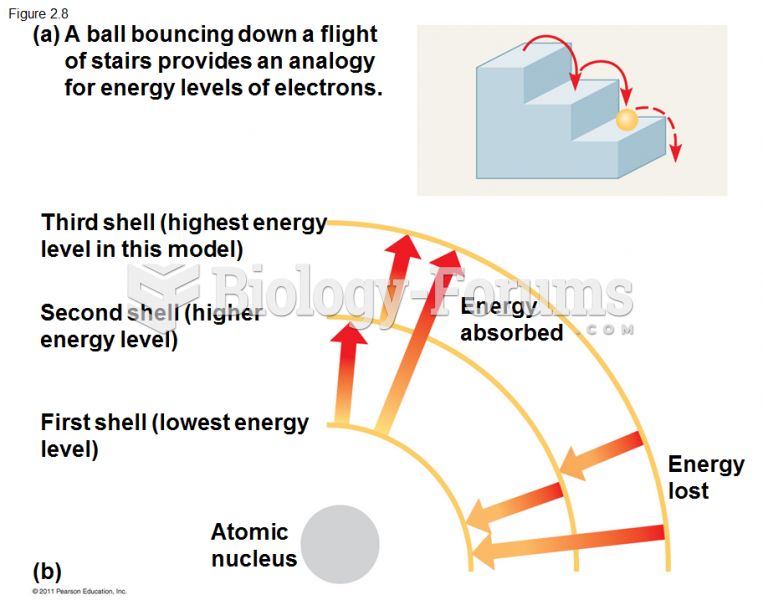|
|
|
Medication errors are more common among seriously ill patients than with those with minor conditions.
There can actually be a 25-hour time difference between certain locations in the world. The International Date Line passes between the islands of Samoa and American Samoa. It is not a straight line, but "zig-zags" around various island chains. Therefore, Samoa and nearby islands have one date, while American Samoa and nearby islands are one day behind. Daylight saving time is used in some islands, but not in others—further shifting the hours out of sync with natural time.
Women are 50% to 75% more likely than men to experience an adverse drug reaction.
Parkinson's disease is both chronic and progressive. This means that it persists over a long period of time and that its symptoms grow worse over time.
Drying your hands with a paper towel will reduce the bacterial count on your hands by 45–60%.







